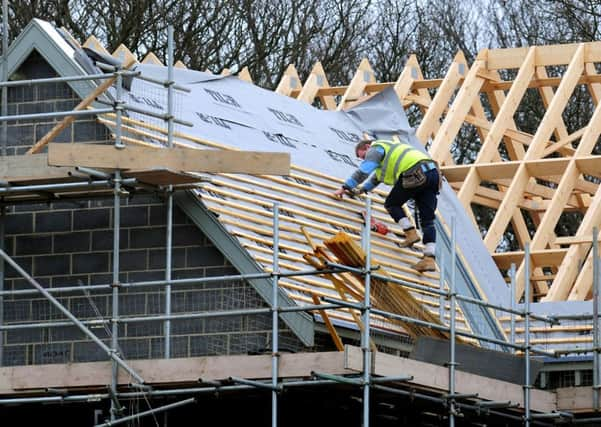Construction crumbles to four-year low after Brexit
This article contains affiliate links. We may earn a small commission on items purchased through this article, but that does not affect our editorial judgement.


Figures from the Office for National Statistics (ONS) have painted a gloomy picture of the industry, with output falling by 1.1 per cent in the third quarter, compared with a 0.1 per cent fall for the previous three months.
The slump was largely driven by a 3.6 per cent drop in repair and maintenance, which was partly offset by a 0.3 per cent increase in all new work.
Advertisement
Hide AdAdvertisement
Hide AdHowever, the sector bucked expectations of a September slowdown thanks to a jump in infrastructure work, which had dropped sharply in August.
The ONS said construction output rose 0.3 per cent in September, up from a revised 1.1 per cent fall in August and above economists’ expectations of a 0.4 per cent drop.
Howard Archer, chief UK and European economist at IHS Global Insight, said it was a lacklustre end to a poor quarter from the construction sector.
“September’s rise of 0.3 per cent was insufficient to prevent construction output clearly contracting in the third quarter, by 1.1 per cent quarter-on-quarter,” he added.
“This was the weakest performance since the third quarter of 2012. In fact, by contracting 1.1 per cent quarter-on-quarter in the third quarter after a dip of 0.1 per cent in the second quarter, the sector is effectively in recession.”
However, Cruden Building & Renewals managing director Allan Callaghan said there were “encouraging” signs within the data, which showed a small year-on-year increase in overall output.
He added: “Housebuilding is a key driver of growth within the construction sector but the skills shortage across the industry remains a pressing issue. The recent announcement that Homes for Scotland and the Construction Industry Training Board have invested £250,000 in the professional skills fund in a bid to help plug the skills gap is certainly an important step in the right direction.
“We all need to play our part to maintain a steady flow of skilled and talented workers and Cruden is committed to training more than 50 young apprentices every year to help support the future of this important sector.”
Advertisement
Hide AdAdvertisement
Hide AdToday’s ONS figures showed that infrastructure work expanded 3 per cent month-on-month in September, while public housing clocked up 5.5 per cent growth and private house building was flat.
The rise in infrastructure work helped offset a poor performance from repair and maintenance, which slipped 1.4 per cent month-on-month in September.
ONS statistician Kate Davies said: “Construction fell overall in the third quarter, with small rises in infrastructure and public building work offset by large falls in repairs. Construction output has remained broadly flat in the last year, both before and after the recent referendum.”
The update comes after the latest PMI report said construction activity in October was buoyed by a “solid” rise in housebuilding work. However, it warned that firms were being hit by Brexit uncertainty and soaring costs from the falling pound.
The UK economy defied expectations that growth would substantially slow in the third quarter, when the latest gross domestic product figures (GDP) were disclosed earlier this month. The ONS said GDP grew by 0.5 per cent in its first estimate of third-quarter growth, down slightly from 0.7 per cent in the second quarter.
